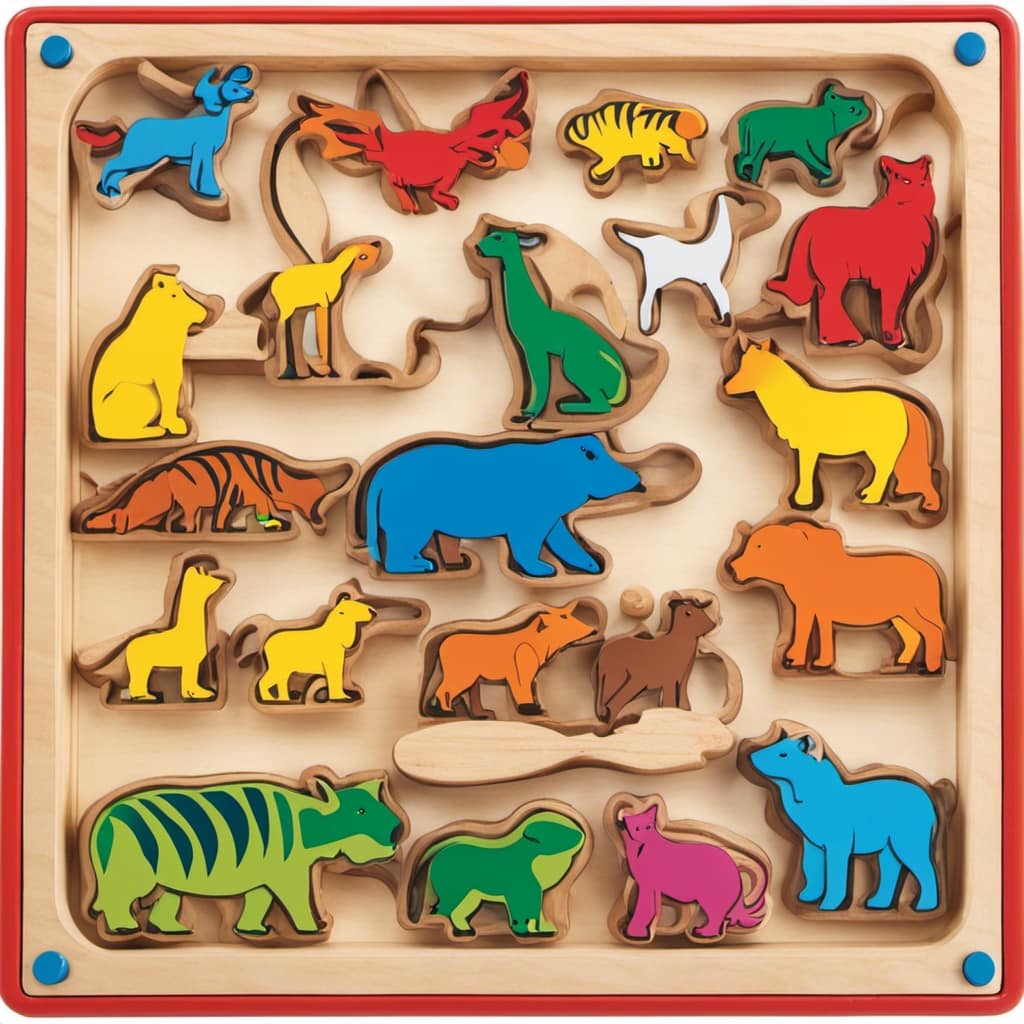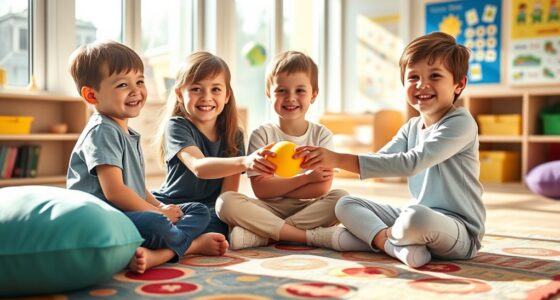As a person involved in either parenting or educating children, I constantly seek strategies to enhance their cognitive development and problem-solving skills. That’s why building blocks have become a crucial tool in my collection.
These simple toys offer a wealth of benefits, from improving spatial awareness and visual perception to developing fine motor skills and hand-eye coordination. But it doesn’t stop there.
Building blocks also play a crucial role in language development, social skills, and even emotional growth.
In this article, we will explore the incredible impact of building blocks on children’s cognitive development and problem-solving abilities.
Key Takeaways
- Building blocks enhance cognitive development and problem-solving skills.
- Building blocks improve spatial awareness and visual perception.
- Building blocks contribute to fine motor skills and hand-eye coordination.
- Building blocks support language development and social skills.
The Impact of Building Blocks on Spatial Awareness and Visual Perception
Using building blocks has greatly improved my spatial awareness and understanding of three-dimensional space. Building blocks are an effective tool for enhancing spatial reasoning abilities. Through the manipulation and arrangement of blocks, individuals develop a better understanding of how objects relate to one another in space.
This improved spatial awareness allows for more accurate perception and interpretation of the size, shape, and position of objects. Building blocks also enhance visual perception by stimulating the brain’s ability to visualize and manipulate objects mentally. This cognitive process aids in planning and analyzing constructions, as well as in recognizing patterns and shapes.

Overall, building blocks provide a hands-on approach to improving 3D understanding and enhancing spatial reasoning abilities, which are essential skills in various fields such as architecture, engineering, and design.
Enhancing Fine Motor Skills and Hand-Eye Coordination Through Building Blocks
By playing with building blocks, I can improve my coordination between hands and eyes. This activity allows me to enhance my fine motor skills and hand-eye coordination, leading to improved dexterity and precision.
Here are four ways that building blocks can enhance motor skills:
-
Manipulating blocks strengthens finger muscles, improving overall fine motor skills.
-
Building structures requires precise hand-eye coordination, as I carefully place each block in its designated spot.
-
The act of picking up and placing blocks helps develop the connection between the visual and motor areas of my brain.
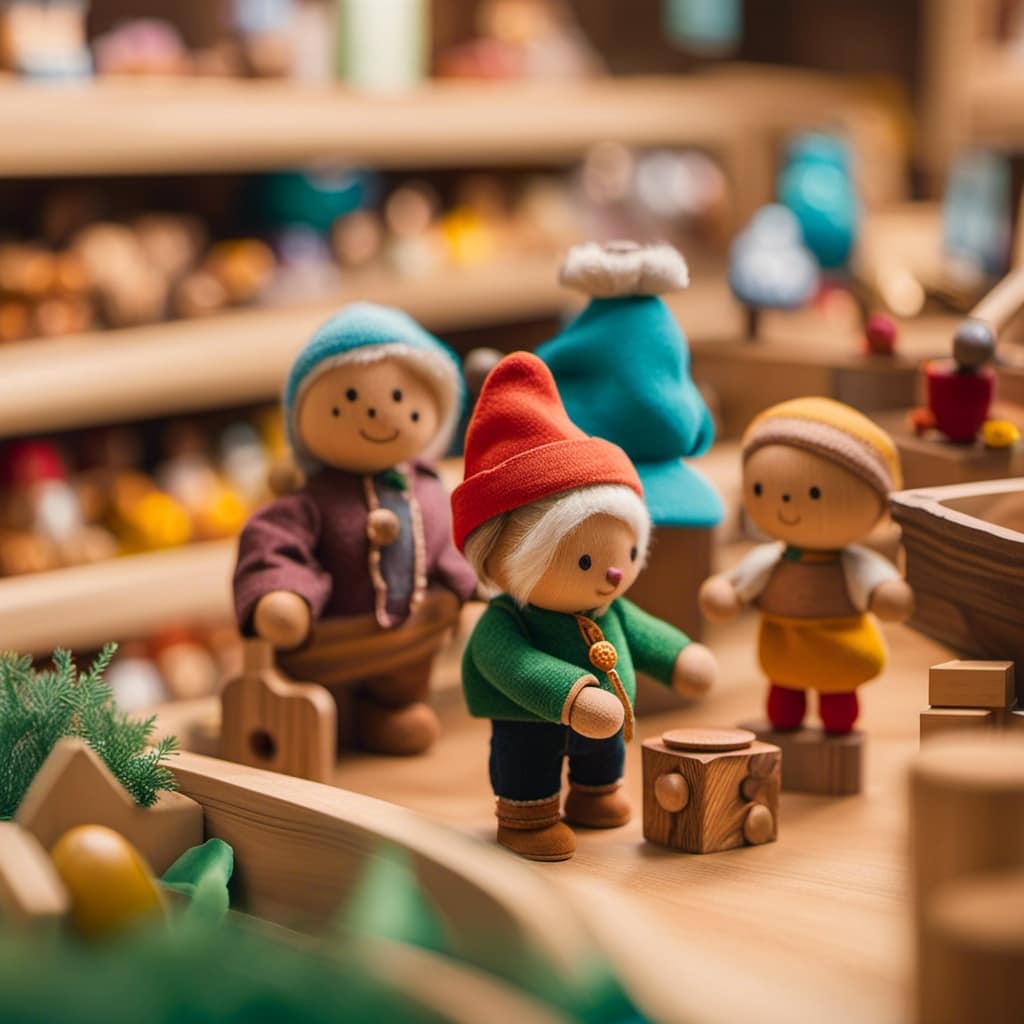
-
Playing with building blocks supports tasks like writing and catching a ball, as it enhances the coordination between my hands and eyes.
The Role of Building Blocks in Language Development and Social Skills
Playing with building blocks has a significant impact on my language development and social skills.
Through block play, I am able to expand my vocabulary by interacting with different shapes, sizes, and colors. Manipulating blocks also helps me develop my communication skills, allowing me to express my ideas and thoughts.
Additionally, building scenarios with blocks introduces me to vocabulary related to different situations. Sorting and categorizing blocks further teaches me words for categorization and expressing my preferences.
Furthermore, block play strengthens my social skills as it provides opportunities for collaboration and cooperative play. Engaging in collaborative block play promotes teamwork, listening to others’ ideas, and considering them. It also provides a platform for me to express my thoughts, engage in conversations, and practice my language skills.
Overall, playing with building blocks not only enhances my language development but also fosters my social skills through collaborative play.
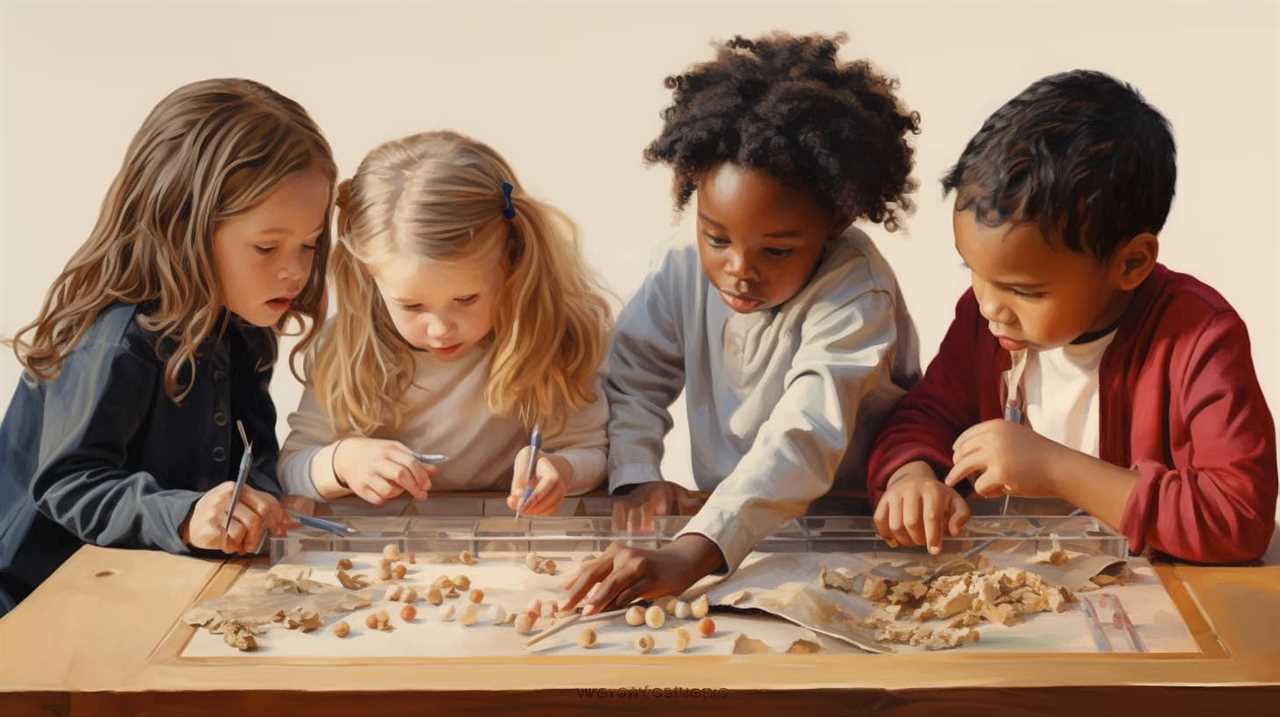
Emotional Development and Sensory Benefits of Building Blocks
Exploring and manipulating different shapes and sizes during block play allows me to develop a strong sense of touch and fine motor skills. This hands-on experience provides me with a variety of sensory stimulation, promoting my emotional development and overall well-being.
Here are four ways building blocks contribute to my emotional growth and sensory benefits:
-
Exploring emotions: Through block play, I can engage in imaginative scenarios and express a range of emotions, fostering my emotional intelligence and understanding of others’ feelings.
-
Sensory stimulation: Handling and manipulating blocks offers tactile stimulation, enhancing my sense of touch and fine motor skills. Additionally, the visual stimulation provided by building structures with blocks improves my visual perception and spatial awareness.
-
Social interaction: Collaborating and communicating with others during block play promotes social skills, teamwork, and effective problem-solving. These interactions contribute to my emotional development and help me develop empathy and perspective-taking skills.
-
Cognitive development: Building blocks provide cognitive benefits, such as enhancing my spatial awareness, logical thinking, and critical problem-solving strategies. These skills are essential for my overall cognitive development.
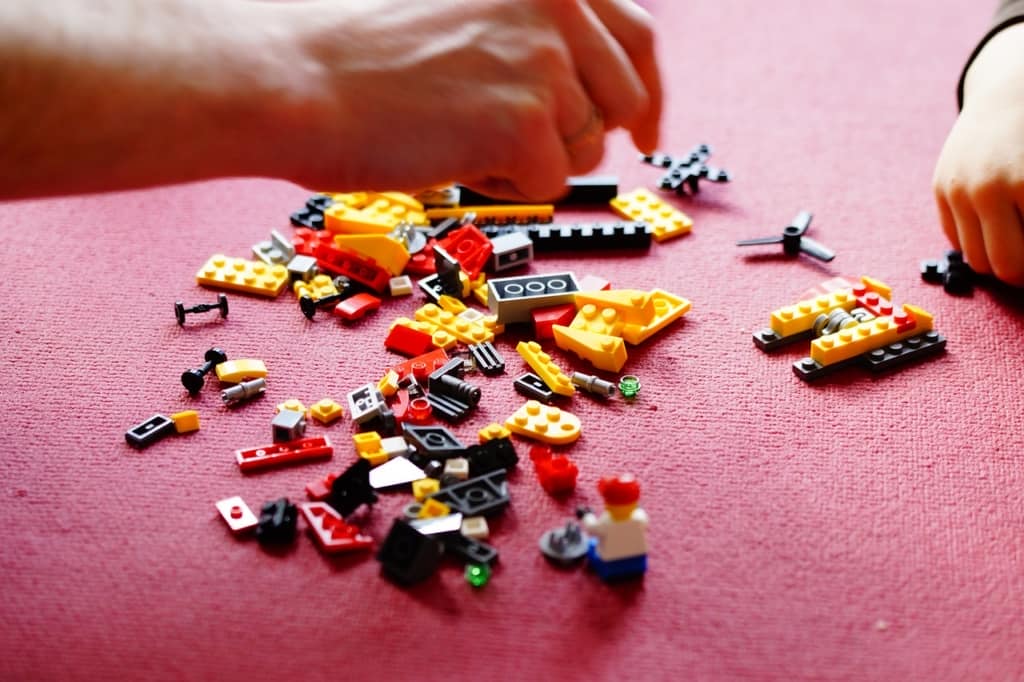
Building Blocks: A Catalyst for Cognitive Development and Problem-Solving Skills
As I engage with building blocks, I can develop my ability to think critically and come up with effective strategies to solve problems. Building blocks are not just toys; they serve as catalysts for cognitive development and problem-solving skills.
Research has shown that building blocks promote critical thinking by encouraging children to analyze, plan, and execute their designs. By manipulating and arranging the blocks, children learn to think logically and develop spatial reasoning skills.
Moreover, building blocks also foster creativity. They provide an open-ended play experience that allows children to think outside the box, explore unique designs, and unleash their imagination.
Through building blocks, children can enhance both their critical thinking abilities and their creative problem-solving skills.
Frequently Asked Questions
What Are Some Specific Examples of Building Blocks That Can Enhance Cognitive Development and Problem-Solving Skills?
Some specific examples of building blocks that enhance cognitive development and problem-solving skills include LEGO, Mega Bloks, and Tegu. These blocks promote spatial reasoning skills and provide children with opportunities to explore, create, and problem-solve.
How Can Building Blocks Be Used to Promote Critical Thinking and Effective Problem-Solving Strategies?
Building blocks in early education promote critical thinking and effective problem-solving strategies. Incorporating building blocks in STEM learning encourages creativity, logical thinking, spatial reasoning, and the development of problem-solving skills.
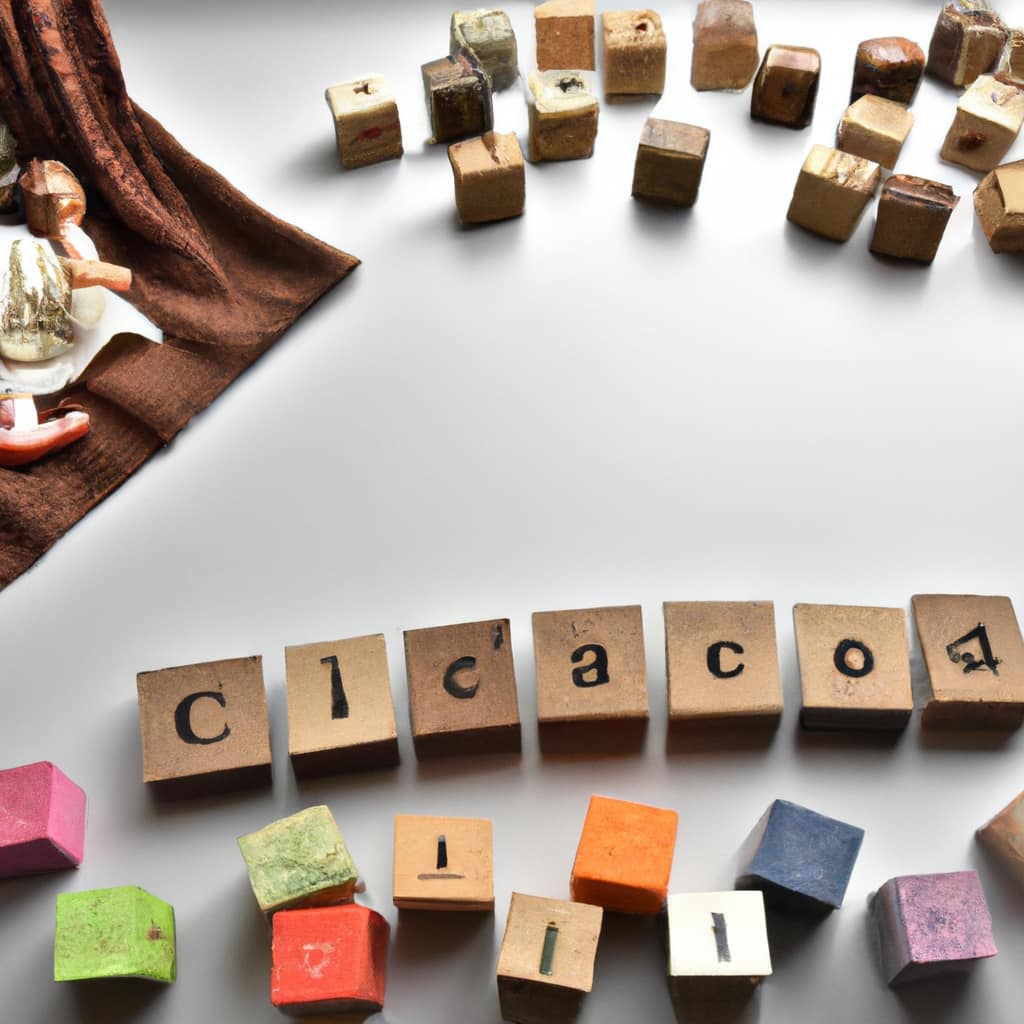
Are There Any Specific Activities or Games That Can Be Played With Building Blocks to Enhance Spatial Reasoning Skills?
To enhance spatial reasoning skills with building blocks, try activities like building towers with different shapes, creating 3D structures, or solving puzzles. These hands-on experiences promote problem-solving, critical thinking, and a deeper understanding of spatial relationships.
Can Building Blocks Be Used to Improve Other Areas of Development, Such as Creativity or Social Skills?
Yes, building blocks can enhance creativity and social skill development. They stimulate imagination, encourage thinking outside the box, and foster teamwork, cooperation, and compromise. Interacting with blocks promotes communication, turn-taking, and sharing ideas.
Are There Any Recommended Age Ranges for Using Building Blocks to Enhance Cognitive Development and Problem-Solving Skills?
There are recommended age ranges for using building blocks to enhance cognitive development and problem-solving skills. Using building blocks has numerous benefits for cognitive development and problem-solving skills.
Conclusion
In conclusion, building blocks have a profound impact on children’s cognitive development and problem-solving skills. By engaging in block play, children enhance their spatial awareness, visual perception, and spatial reasoning abilities. They also improve their fine motor skills and hand-eye coordination, which are crucial for various activities, including writing.
Additionally, building blocks foster language development and social skills, promoting teamwork, cooperation, and effective communication. Moreover, block play contributes to emotional development and provides sensory benefits.
As the saying goes, ‘A picture is worth a thousand words,’ and building blocks indeed provide a visual representation of the multitude of skills and abilities children can acquire through play.


